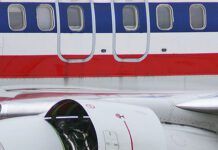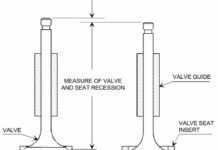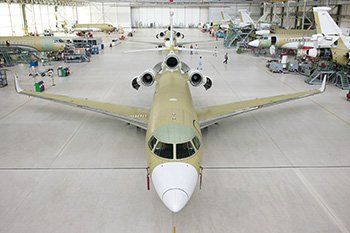Asked during the company’s NBAA-BACE press conference about efforts in France to add regulations and taxes to business aviation operations, Dassault Aviation President Eric Trappier was candid in his assessment of the movement, saying it was based more on politics than environmental science. With Dassault Groupe (including its vaunted electronics business division Dassault Systemes as well as the Falcon Jet and military Rafale aircraft divisions) one of the crown jewels of French industry, Trappier’s words and sentiments are not to be taken lightly.
Still, French Finance Minister Bruno Le Maire said he wants to “go even further,” mandating the use of sustainable aviation fuel (SAF) by business aviation, which seems odd rhetoric, since business aviation is recognized as already leading the development and adoption of SAF.
On the taxation front, the aviation director for the Transport and Environment group said parliament members will be discussing adding taxes on jet fuel, estimating the move could increase tax revenue by $567 million by 2030. The aim would be to use the revenue to further reduce aviation’s carbon footprint, including funding the further development and production of SAF as well as developing zero-emission aircraft.
In terms of monitoring carbon emissions among aviation stakeholders, Marc Cottignies, an engineer at the French Agency for Ecological Transition, said, “Indeed, we could expect from users and the market that, first, they monitor their climate impact annually or even monthly: they have to know what are their current [greenhouse gas] emissions per year and follow them month-to-month at least.” This is despite the fact that France is among the 115 countries that have signed on to the International Civil Aviation Organization’s (ICAO) Carbon Offsetting and Reduction Scheme for International Aviation (CORSIA).
That initiative is self-defined as a “global market-based measure for any sector and represents a cooperative approach that moves away from a ‘patchwork’ of national or regional regulatory initiatives. It offers a harmonized way to reduce emissions from international aviation, minimizing market distortion, while respecting the special circumstances and respective capabilities of ICAO Member States.”




































It’s always comforting to see that politicians and government officials in other countries are as clueless and useless as they are here in America. They want industry to do things that are already being done so they (the government) can take credit for it. Plus, when in doubt, hit ’em with more taxes because they are all rich fat cats and can afford it. The engineer for what appears to be the French version of our EPA wants business to monitor their monthly emissions so they can show how much “progress” is being made on carbon reduction? Sounds like a job for another useless government department! Maybe they can take some of that new tax revenue and figure out a way to run the jets on wine. 🙁
It is not more politics than environmental science, it is all politics aimed at extracting money from private industry for more government waste spending and virtue signaling.
From Blazing Saddles: “We’ve got to protect our phony-balony jobs!” https://getyarn.io/yarn-clip/a8aaa2f5-377a-41e6-88d2-b8ebdcc1ceb5
The lie (or if you prefer the gross exaggeration of any measured warming in the atmosphere) has to be maintained at all costs. What is at stake here would be a collapse of government power, taxes, grant money, book sales, news reporting, PAC money, exotic location UN meetings, solar sales, eVTOL development, and even some new powers of censorship.
“Every complex problem has a solution which is simple, direct, plausible—and wrong”